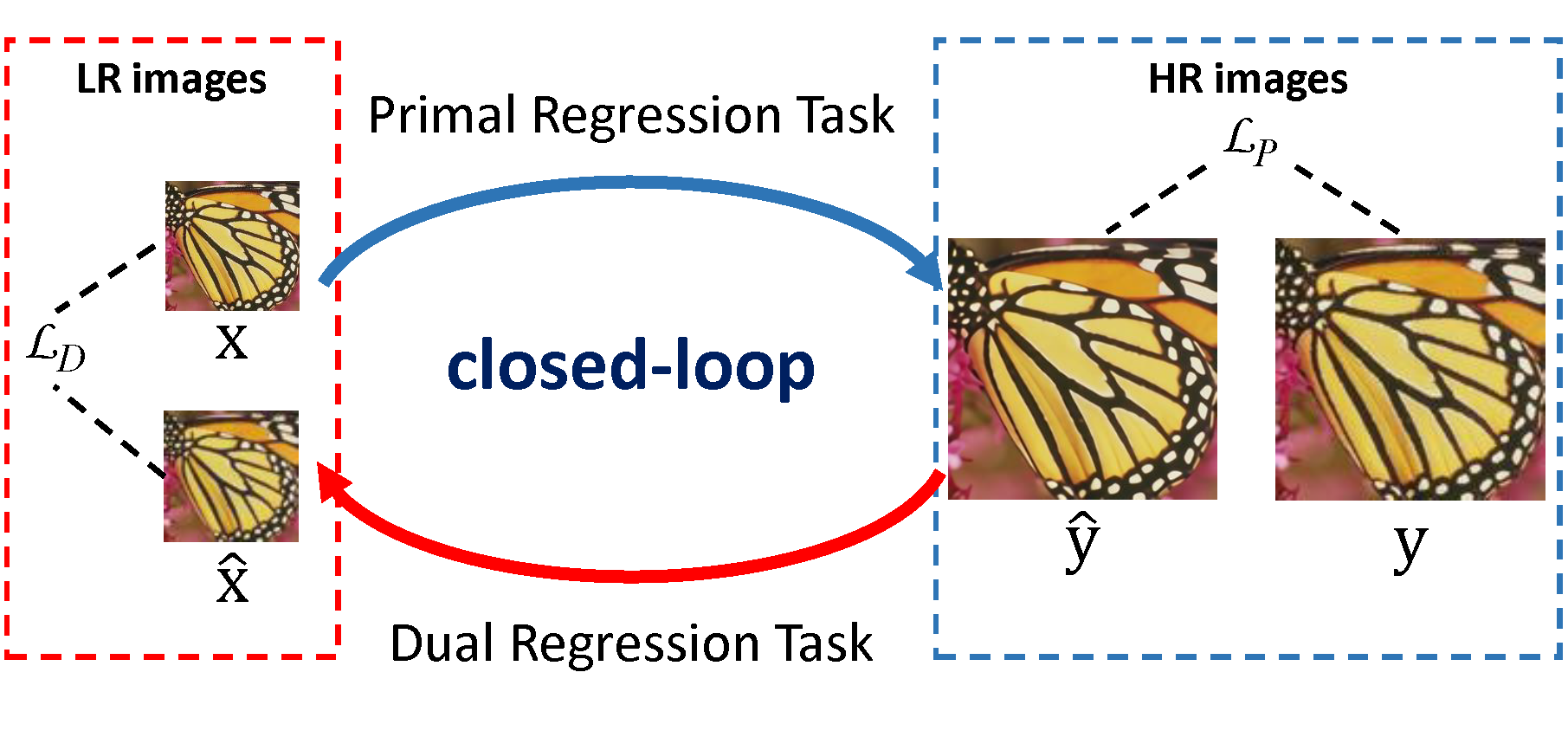Closed-loop Matters: Dual Regression Networks for Single Image Super-Resolution
Pytorch implementation for "Closed-loop Matters: Dual Regression Networks for Single Image Super-Resolution".
Dependencies
Python>=3.7, PyTorch>=1.1, numpy, skimage, imageio, matplotlib, tqdm
Quickstart (Model Testing)
Results of our pretrained models:
| Model | Scale | #Params (M) | PSNR on Set5 (dB) |
|---|---|---|---|
| DRN-S | 4 | 4.8 | 32.68 |
| 8 | 5.4 | 27.41 | |
| DRN-L | 4 | 9.8 | 32.74 |
| 8 | 10.0 | 27.43 |
You can evaluate our models on several widely used benchmark datasets, including Set5, Set14, B100, Urban100, Manga109. Note that using an old PyTorch version (earlier than 1.1) would yield wrong results.
python main.py --data_dir $DATA_DIR$ --save $SAVE_DIR$ --data_test $DATA_TEST$ --scale $SCALE$ --model $MODEL$ --pre_train $PRETRAINED_MODEL$ --test_only --save_results- DATA_DIR: path to save data
- SAVE_DIR: path to save experiment results
- DATA_TEST: the data to be tested, such as Set5, Set14, B100, Urban100, and Manga109
- SCALE: super resolution scale, such as 4 and 8
- MODEL: model type, such as DRN-S and DRN-L
- PRETRAINED_MODEL: path of the pretrained model
Training Method
We use DF2K dataset (the combination of DIV2K and Flickr2K datasets) to train DRN-S and DRN-L.
python main.py --data_dir $DATA_DIR$ --save $SAVE_DIR$ --scale $SCALE$ --model $MODEL$- DATA_DIR: path to save data
- SAVE_DIR: path to save experiment results
- SCALE: super resolution scale, such as 4 and 8
- MODEL: model type, such as DRN-S and DRN-L
Citation
If you use any part of this code in your research, please cite our paper:
@inproceedings{guo2020closed,
title={Closed-loop Matters: Dual Regression Networks for Single Image Super-Resolution},
author={Guo, Yong and Chen, Jian and Wang, Jingdong and Chen, Qi and Cao, Jiezhang and Deng, Zeshuai and Xu, Yanwu and Tan, Mingkui},
booktitle={Proceedings of the IEEE Conference on Computer Vision and Pattern Recognition},
year={2020}
}
